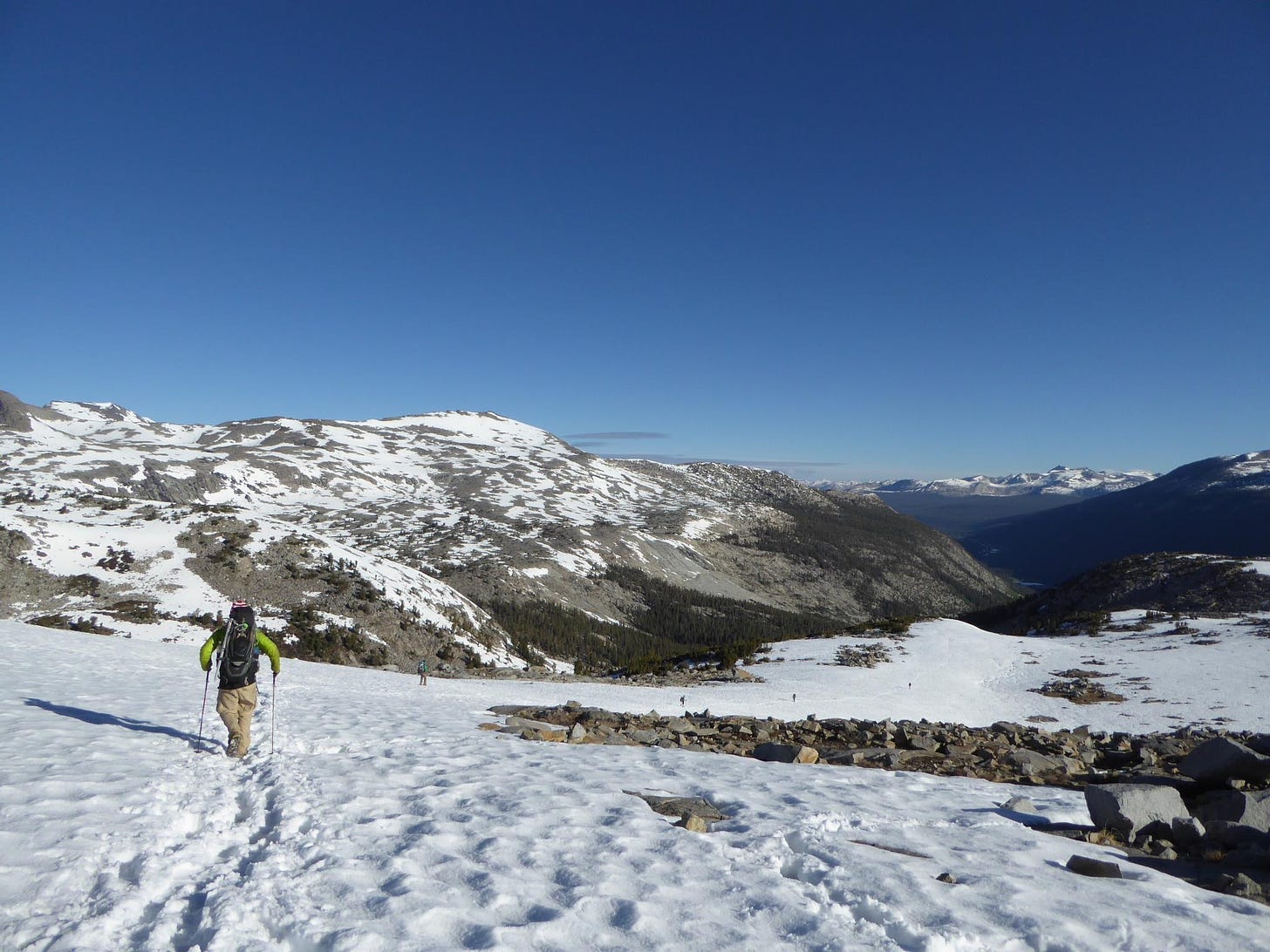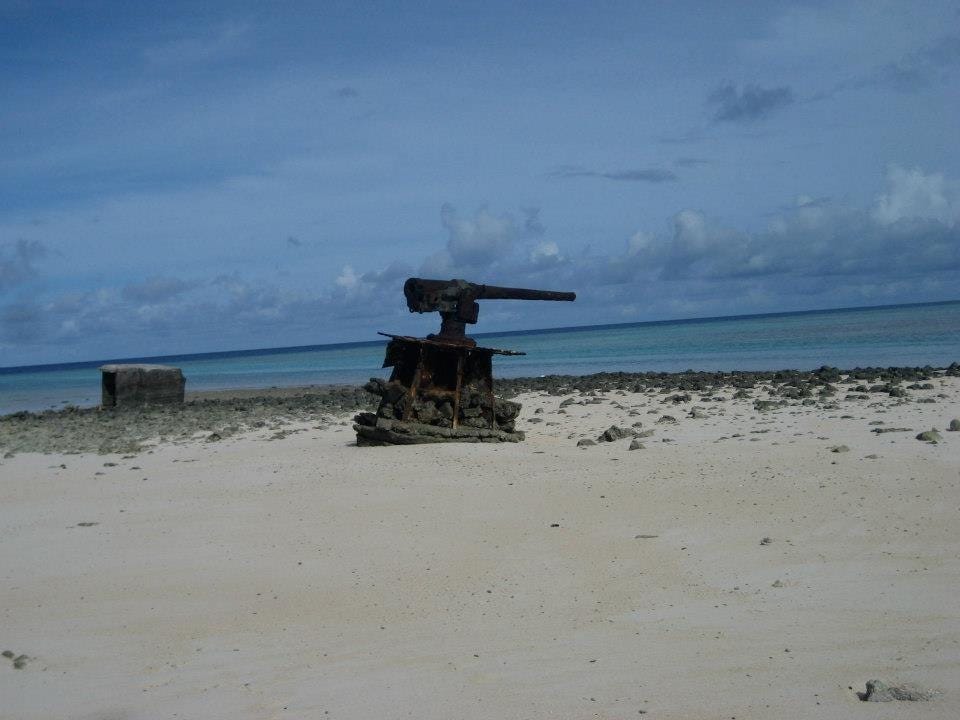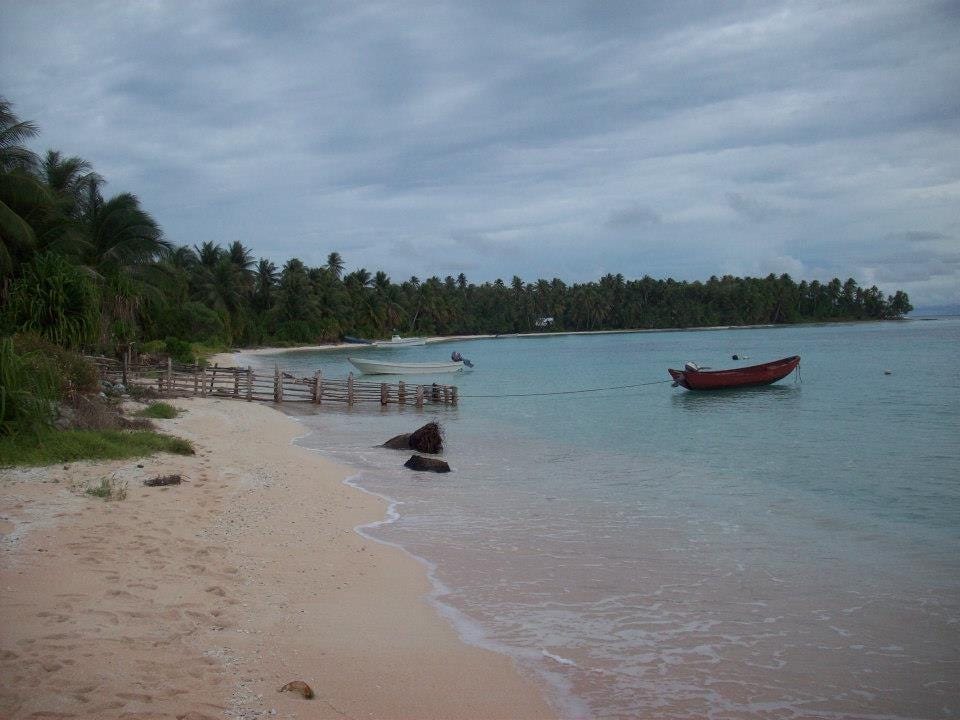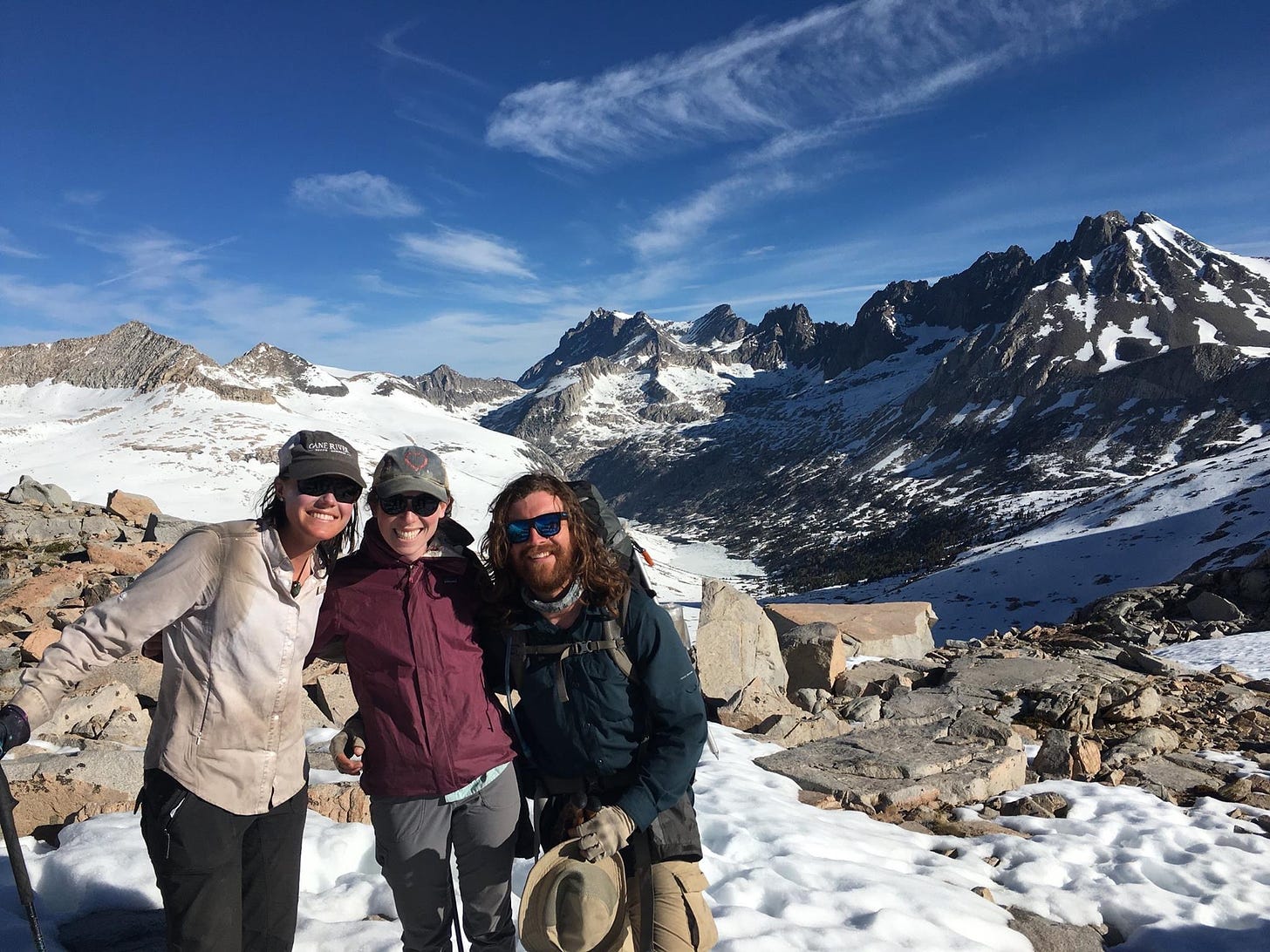How Close We Come To Not Existing
This newsletter is digital, but you wouldn't be reading it without the Post Office.

Recent events have made it feel important to tell a quick pair of stories about the post office.
I guess the precursor to these stories is that I likely wouldn’t exist without the postal service, where my paternal grandfather worked for 35 years. He met my grandma there. It stands to reckon that I wouldn’t be me without that particular institution.
Anyway. The first story begins back during World War II, right around the time that my grandparents were meeting at the Downtown Syracuse Post Office. The Marshall Islands, a nation scattered across the central Pacific, were under Japanese control, Japan having seized them in a bloodless coup during WWI from the German government that had “owned” them since the booming colonial days of the late 19th century. The Japanese ran a brutal system of administration during WWII—if you’ve read or seen Unbroken, the story of Louis Zamperini, you’ll know what I’m talking about—until 1944, when the islands were liberated by the United States. All’s well that ends well, right?

A Japanese anti-aircraft gun on the beach of Taroa (Maloelap Atoll), Marshall Islands. I spent 3 nights here in 2013.
Fast forward to 1954, and the Castle Bravo test, at the time the largest nuclear explosion in the history of the world. The United States dropped megaton warheads on the waters surrounding Bikini Atoll, where they had evacuated residents without advance warning in the days prior. Cancer rates became (and are still) astronomical, and hundreds of people lost hands, eyes, tongues from catching the “snow” that fell for days following the explosion. Forty-two years after the expulsion of Japanese forces, in 1986, the Marshall Islands were freed from formal colonial rule by signing the Compact of Free Association with the United States, which granted them their nation status.
The U.S. still runs a naval base on Kwajalein Atoll, a key component of the Pacific missile defense and space monitoring systems.

The former Japanese military HQ on Taroa.
I moved to the Marshall Islands to teach English in July of 2012, a month after graduating a university that had more undergrads than my new host country had residents. I lived on an island of ~200 people called Aur, some 80 miles from the capital island of Majuro. It was a lonely year, leaving the raucous party atmosphere of Ohio State and the known comforts of America for a place where I was in bed by 9 every evening in the darkest darkness I’ve ever experienced. If I did anything at night besides read by flashlight it was walk the single path that stretched from one end of the island to the other and drink in the stars overhead. I have never seen such a display, before or since. Not in the windswept desert of Peru, not in the icy backcountry of the Sierra Nevada. These stars were indulgent. A firmament for irony to die in.
We got internet about three months after I moved to Aur, a single laptop with an ethernet cord. Prior to that I had to satisfy myself by writing letters to check in with people. Every few weeks a mail boat or cargo boat would come by, and I would bundle up whatever letters I had written, pass them to my host father, and watch as he handed them off to the appropriate people, giving instructions in rapid Marshallese. There was always a bit of a prayer sealed into those bundles—the weather rarely changes in that place, and as a result the Marshallese do everything very casually and without hurry.

But every single one of those letters got delivered. As a result of the Compact of Free Association, the Republic of the Marshall Islands still operates a U.S. Post Office on Majuro and use the U.S. dollar. So for 35 cents I regularly sent letters to people in New York and Ohio from an island without running water 7,000 miles away. And as nice as I’m sure it was for people I cared about to get a little envelope with a coconut stamp on it…things came to me, too, every six or eight weeks, care packages containing Oreos and Sports Illustrateds and all sorts of other things I couldn’t get and my students had never seen. Those white, red, and blue USPS Flat Rate boxes became a beacon of hope in my life. A concrete tether to the person I had been before I got to Aur.

I still have, as far as I’m aware, every letter, card, or note I’ve been sent through the mail since 2012. That stack got a little higher in 2016 when I hiked the Pacific Crest Trail. (This will be the last newsletter I talk about the PCT for a while, I promise.) There are a handful of postcards and notes that are dirty and weather-stained from being shoved in my backpack or tucked into whatever book I was carrying for company at the time. And hiking the PCT gave me an even deeper appreciation for the magic of the Flat Rate box, too. The infrastructure of backcountry America is, shall we say, underdeveloped, but the post office remains undefeated even in the wild places on the western half of the continent. I think my favorite bit of creative solutioneering was in Snoqualmie Pass, Washington, where hikers’ boxes are delivered en masse to the Chevron station along the side of I-90 and stacked in an empty walk-in beer cooler. You just stroll in and take yours out on the honor system, unless you need help finding it in the library-stack labyrinth of the cooler.
(While writing that anecdote I remembered that my first hitchhike of the trail, down into the hamlet of Mount Laguna, CA, population 57, was fortuitously with Mount Laguna’s postmaster. She brought me and a friend into town in her pickup truck, where she unlocked the post office—closed for the evening—and retrieved a package of food another friend had sent me. I’m not sure that’s an advertised service but I didn’t complain.)

Somewhere in the Sierra Nevada along the Pacific Crest Trail, 2016
What I’m saying is that the U.S. Postal Service is profoundly important to me. I think it’s one of maybe three American institutions worth saving, alongside the 24-hour diner and the National Park system. And now the USPS is on the chopping block—one more future casualty of neoliberalism’s voracious appetite for turning public institutions private. I don’t tend to write or even think much about our current president, not because I’m one of those people who treat him like Voldemort and have to pretend he doesn’t exist, but because his existence is sort of tangential to the kinds of political change I invest my time in. When you treat Trump as a symptom and not the whole disease, all sorts of possibilities open up. But in this case the idiot really does seem to have it out for the postal service, in part because it hasn’t gotten sold off yet and in part I think because the USPS has been too nice to Jeff Bezos (another champion of public goods) or something?
To be fair, it was #resistance darling George W. Bush that planted the time bomb inside the postal service when he forced it to fully fund retirement benefits and pensions for employees for 75 years on a very short timeline. No public service has ever been required to do that before or since. How many people, companies, or other institutions could pony up for every conceivable cost in a lifetime all at once? Much less the post office, which I have to stress again regularly allowed me to send mail 7,000 miles for 35 cents.

The mail got from this house to the Syracuse suburbs, if that helps you contextualize.
Of course, there’s also this tidbit, which means that the notion that the USPS can just raise prices overnight to make up for their operating deficit is stupid and wrong:

Jim Harrison once wrote that “it is pleasantly awkward to think of how close we come to not existing.” There are all sorts of minute chances and changes along the way, and none of us was ever guaranteed, you know? But I do feel pretty confident that my life would not have happened were it not for the fact that working at the post office was for a long time a steady, desirable job with union protections and benefits. It is a stone bummer to think about how that slow erosion is becoming a landslide. To quote Harrison once more:
The possibility of stopping people from doing what they do to other people seemed out of the question. Congressmen die in bed.
In a just nation we’d be expanding the post office, not gutting it. We’d already have nationalized Wells Fargo and all the other banks and run those through it, too. Ditto for Amazon and FedEx—we’re talking an intricate, well-managed international supply chain run for utility and not for profit.
Someday. Someday.

Thanks for coming along this week. If you enjoy this newsletter and feel like supporting the effort, why not pass it along to someone else you think would like it? You could also buy yourself or someone else my book by clicking the button below. No matter what, know I’m grateful to you just for reading this far.
-Chuck




Chuck, I agree, the postal service is still essential to significant areas of the country, even as so many of us abandon it with email and texting. I am glad to see one of your generation with a full appreciation of it. Larry
Chuck - we both have deep post office roots. A century ago, my great uncle Dan took four years off from his tenure as Sheriff of Kings County (Brooklyn) to serve as a representative in the US Congress. He thought it was a ridiculous, useless job devoid of opportunities for offering patronage to his constituents and cronies, and so he returned to Brooklyn and resumed his job as Sheriff. The one lasting contribution of his time in Congress (a pretty feeble institution in what, for a New Yorker, was then a crummy southern town), was the first bill establishing pensions for postal workers. I have told that story to ever postman or woman who has ever come to my door. Letter carriers of any age can usually tell you with great accuracy their retirement date.